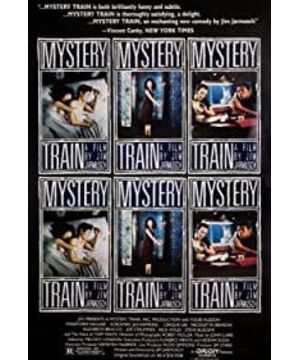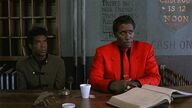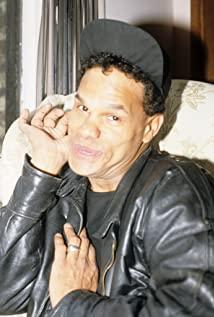Mizi and Chun, Louisa and Didi, and Johnny on this day's Memphis gossamer, all because of a man who died many years ago. The soul of the person who arrives, dawn comes, the mystery is no longer, and the passers-by eventually become strangers.
Jarmusch calmly annotates the surrounding life in a fade-in and fade-out way. The characters' blurred emotions and the joys and sorrows of life gradually come to life after the hustle and bustle fades away.
In the first story, "Away from Yokohama", when Miko took off her clothes and prepared the fish, she was still indifferent, leaning against the window and chanting: "In fact, Memphis is very similar to Yokohama, if you remove 60% of the buildings in Yokohama." For a A traveler, who came to the United States from Japan across the entire Pacific Ocean, but found that he still could not get out of his hometown, as if loneliness had fixed this young man. When Mizi was about to wake up from sleep, she also said something like this: "I really love sleeping because I can dream, but I'm really afraid of dying, because when I die, I can't sleep anymore, and I can't dream anymore." Mizi is lively. Cute, looking at the sullen pure, put his lipstick on the boy's mouth, the boy's bored face then had a bloody mouth, but he still had a bitter face, the girl asked him why he was unhappy, the boy said no, I am actually very happy, but I was born with this face, there is no way. Perhaps only in the illusory sustenance and dream of Elvis and Carl Perkins, Miko and Chun still feel a little bit of the throbbing of life. As for the gunshot, simply saying "this is the United States" relieved a little nervousness. The trajectory of others is always parallel to himself. This direct alienation almost runs through many of Jamu's films.
The second story, "Ghost", has a stronger sense of chance, life is unknowable, and the predictable is machinery. Italian woman Luisa has just become a widow and has to spend a day in the strange city of Memphis because of a flight schedule change. Walking in the city, she was persuaded by the eloquent newsstand owner, passively bought a stack of newspapers and magazines, passively spent money to listen to a story about Elvis' soul told by a liar, and then passively escaped from the liar Chase, and finally happen to meet a chatty woman, Didi, who can share a room with her. The miracle happens here: Louisa believes the liar's story about Elvis' soul, and Dee Dee tells Louisa that everyone in Memphis knows the story. In the middle of the night, Louisa saw Elvis in the room in a trance and had a brief conversation with her. Then Elvis left. Louisa came here passively, she was kind and beautiful, and believed in the existence of the soul and the final miracle appeared. Hehe, the funny thing is that Elvis did not favor Mizi and Chun, who came to make a pilgrimage.
The pace picks up, and the third story, "Lost in Space," is filled with Memphis natives. Johnny, nicknamed "Elvis", broke up with his girlfriend Didi and lost his job. He took his friends to drink. After drinking too much, he pulled out the pistol he carried with him to play. The bar owner called his black friend Will. He and his girlfriend Didi's younger brother Charlie drove him home. When the three got out of the car and went to the bar to buy drinks, the bar owner made a rude remark to Will because of racial discrimination. Johnny pulled out a gun and wounded the boss. The three panicked. He drove away in a panic, drank alcohol in the car, and finally arrived at the hotel (the same hotel) exhausted. At dawn, Johnny tried to shoot himself. The gunshot was the same gunshot heard by the people in the previous two stories, and at this point, the three had to drive out of the hotel in embarrassment. Still by chance, the seemingly stable life trajectories of the three Memphisians were disrupted.
Jarmusch's city has no borders, breaking through the boundaries of time, space and region, and is empty and barren. Jarmusch's calm commentary never imposes or interferes with the characters' hearts and actions. In fact, Jarmusch's long shots contain gentle romance and humor, which is a kind of respect for people. Jarmusch's characters have always been in a state of search, and the soul can be glimpsed.
An independent film director, does not rely on fantasy stories, transvestites, marijuana and prostitutes, but only uses his calm inspection, restrained emotions, concise scheduling, and river-like warmth to tell us about the city, the night under his sharp appearance and life stories.
View more about Mystery Train reviews











